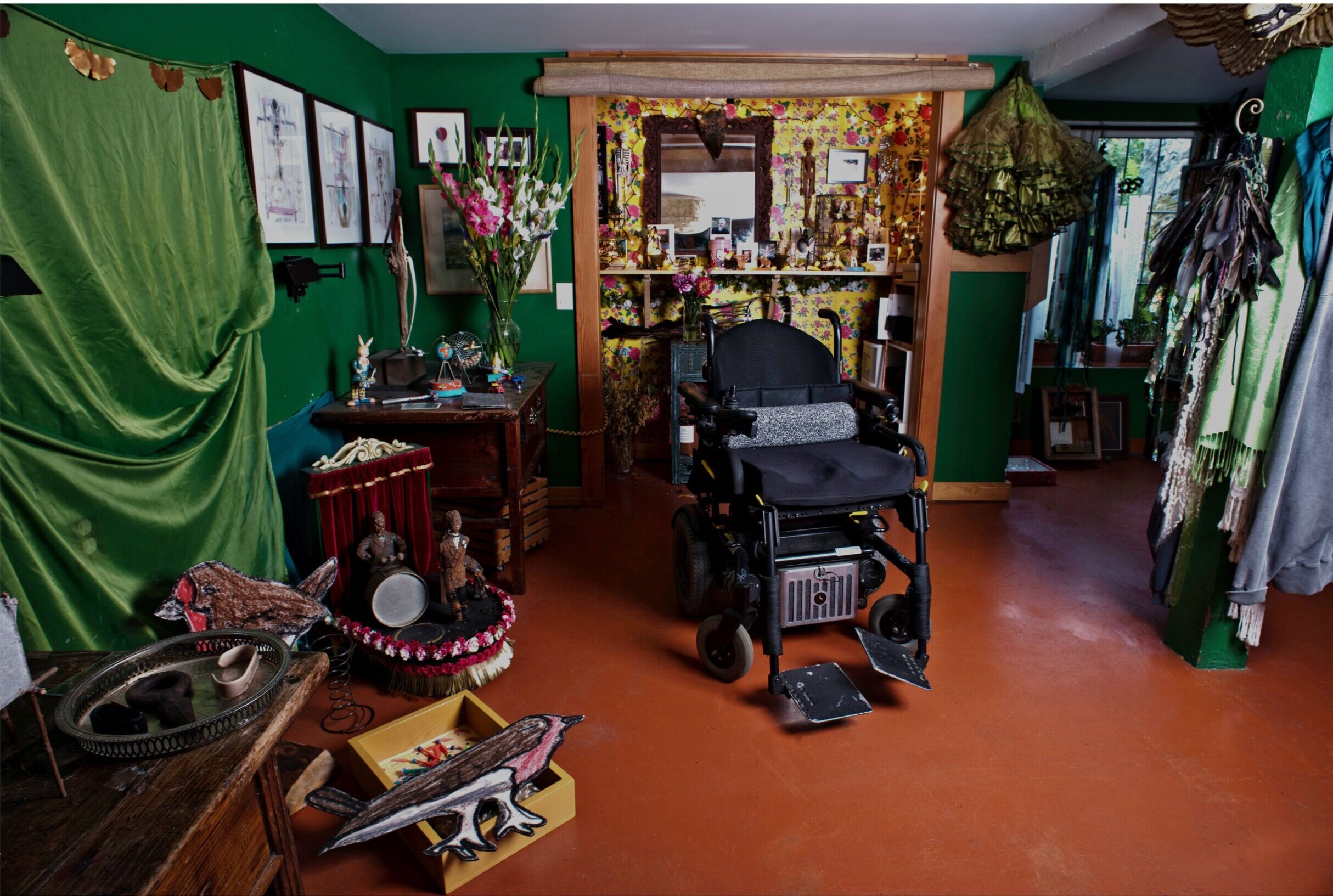
Dear Reader
This issue of the Disability Digest highlights renowned educator Maria Montessori, athlete and diversity campaigner Anne Strike, Glee actor, Lauren Potter and British academic and activist Tom Shakespeare. The world is so much more wonderful with their presence, creativity and contribution, isn’t it?
The picture above is from Time-Lapse: Post-Humous Conversations—A Geoff McMurchy Retrospective, curated by artists SD Holman and Persimmon Blackbridge.
You can help rewrite history by sending your comments and suggestions for future issues via this form. And if you like what you’re reading do spread the word.
Enjoy – Al
PS: check out my new podcast series The Power of Disability. It’s a partnership with Simon Fraser University’s Below the Radar podcast. My first guest is Victoria Maxwell who describes herself as the “bi-polar princess.” This week’s conversation is with Judy Heumann who was featured in Crip Camp: A Disability Revolution nominated for a 2021 Academy Award for best documentary.
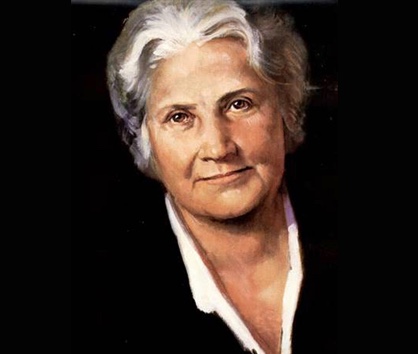
On May 6th Italian pediatrician and educator Maria Montessori died (1950). The Montessori Method of early childhood education emerged out of her experience working with children with intellectual disabilities who lived in an Italian institution. She was horrified by the barren setting and dismissed the caretakers who treated the children with contempt. That experience taught Montessori that children were not empty vessels waiting to be “filled up” by teachers. Instead, she realized that children had the power to educate themselves and the job of the teacher was to recognize and nurture the unique gifts of each child. “Never help a child with a task at which they feel they can succeed,” she wrote. Her respect for children is embedded in her motto, “Help me to help myself.”
According to the American Montessori Society the Montessori Method has been “time tested, with over 100 years of success in diverse cultures throughout the world.” The teaching methods and materials she developed were later adapted for use in regular classrooms, eventually benefiting all children. Montessori was the first educator in the world to use child-sized tables and chairs in her classrooms. She pioneered open classrooms, early childhood education, educational toys and the idea that children learn through play. “Children are human beings to whom respect is due, superior to us by reason of their innocence and of the greater possibilities of their future,” she said.
Montessori was nominated for the Nobel Peace Prize three times. The inscription on her tomb says: “I beg the dear all-powerful children to unite with me for the building of peace among people and in the World.”
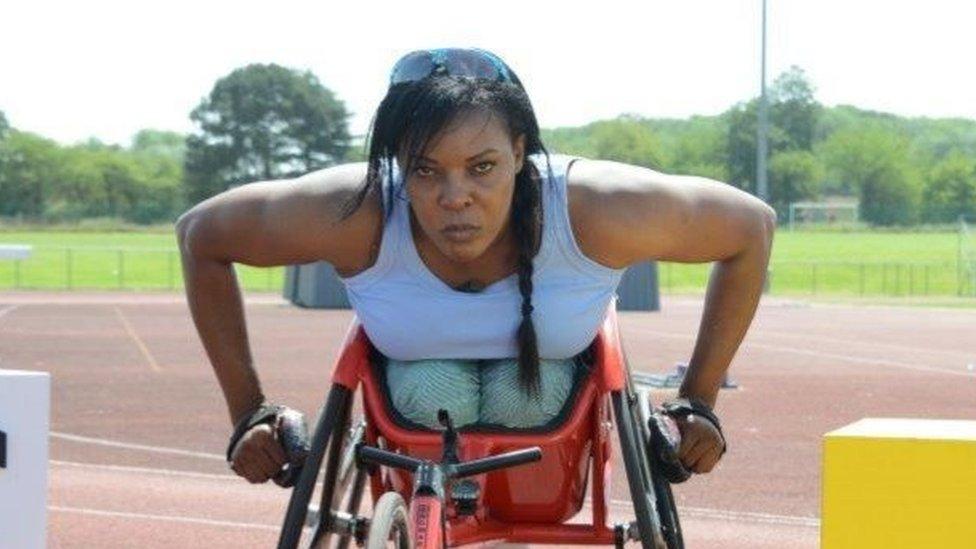
May 8 is the birthday of British Paralympic wheelchair racer and human rights campaigner Anne Wafula Strike (1969). Strike was born in rural Kenya. She contracted polio when she was two and became paralyzed below the waist. There were no wheelchairs available growing up. She describes using heavy crutches and steel calliper leg braces to “drag and pull myself along.” Her mother died when she was young. She and seven siblings were raised by their father. “If it wasn’t for my father telling me I had a special place in this life, I wouldn’t be here now. I now believe nothing disables me more than staying silent on the things that impact me.”
Strike is the first member of her family to graduate from college. She met her husband while teaching in Kenya. They married and settled in the UK. She became an athlete by accident. She wanted to lose weight after the birth of her son and was thinking of going to a gym when someone suggested she should try disabled sport. In 2004 she became the first wheelchair racer from Sub-Saharan Africa to compete at the Paralympics, representing Kenya at the Athens Games. She became a British citizen in 2006 and represented that country in the London Games.
Strike’s mission is to campaign for diversity and inclusion. “I have seen pain in the eyes of young girls, whose ambitions have been taken away just because they are girls; I have experienced the struggle that black people face in order to be recognised as equal even in 2020,” she told an interviewer. She believes that disrupting the status quo is a powerful driver of change. Her focus is making sure the voices of disabled women are heard within the women’s movement. “To me diversity is being invited to the party; inclusion is being asked to dance. I want to dance,” she said in her Ted Talk.
In 2019, Anne was recognized as one of the 100 leading Black women in the world. “Climb the mountain so you can see the world, not so the world can see you,” she said.
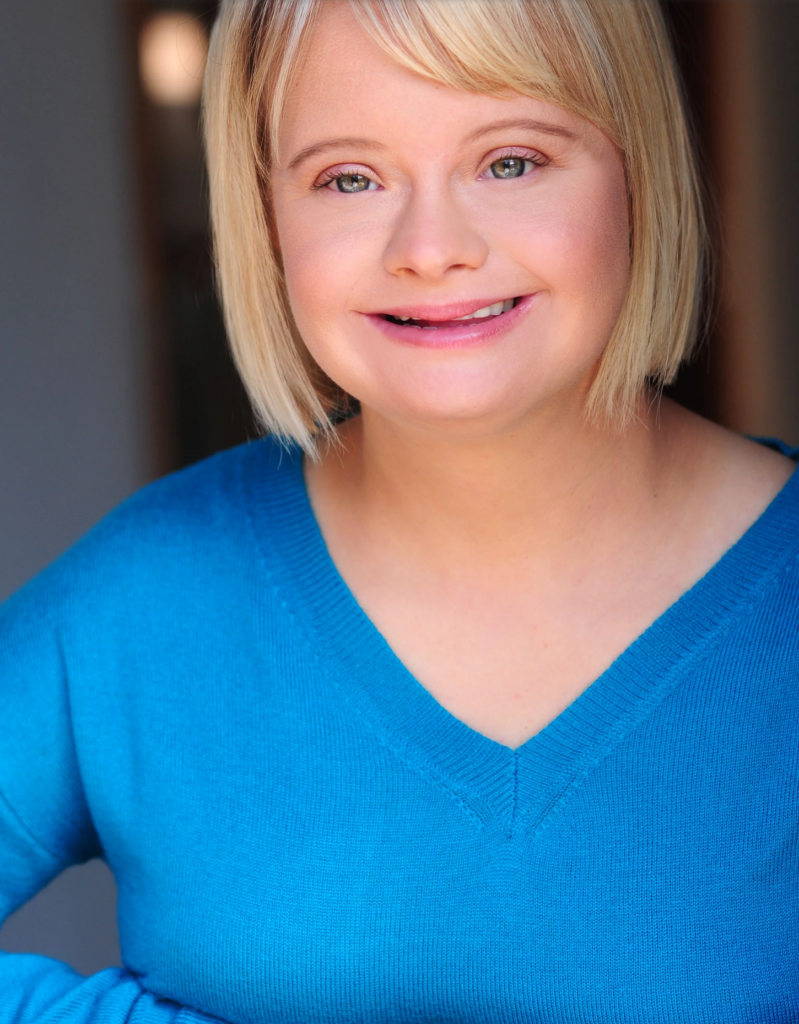
May 10 is the birthday of American actress, advocate, and comedian Lauren Potter (1990). Potter is best known for playing one of the most famous cheerleaders in history, Becky Jackson on the TV show Glee. Her Becky isn’t the sweet, loveable personality often attributed to people who have Down syndrome. She’s feisty and sassy. “You should see my dance moves,” says Becky. “My mom says I have Get Down Syndrome.” She can be mean and disagreeable. She schemes with coach Sue Sylvester to destroy the school’s Glee club. “I’m Queen Bee, and I can sting like a bitch!”
Off screen Potter is just as witty and poised. Potter knows the difference between a good joke and a mean-spirited one. “I have Down syndrome and human decency,” she recently tweeted. She uses her celebrity status to disable bullying and name calling. “I want to live in a world where people care about others and try not to hurt others with words or actions,” she says. She is featured in the children’s book, Good Night Stories for Rebel Girls Vol 2. “Only listen to those people who tell you that you can do it,” she said. “Not those who tell you that you can’t.”
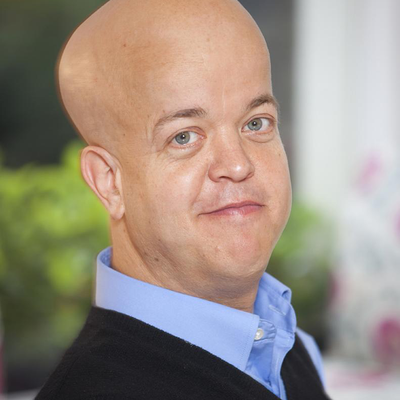
May 11th is the birthday of English activist, author, and professor of disability research Tom Shakespeare (1966). He describes himself as a farmer of thoughts. Multi-talented, he has performed as a comedian and dancer, and won the TV quiz show 500 Questions. He is a regular commentator on BBC radio. He has written or edited more than ten books, authored three TV documentaries and written for the medical journal, The Lancet. Shakespeare inherited the title Baron from his father but never uses it. Both he, his father and his children have achondroplasia, a form of dwarfism. In 2008 he injured his spinal cord and now uses a wheelchair.
Shakespeare was part of the team at the World Health Organization in Geneva which produced the first World Report on Disability (2011). They concluded that 15% of the world’s population had a significant disability. “Disability is not a minority issue, affecting only those people defined as disabled people,” he writes. “It is a universal experience of humanity.”
His specialty is the sociology of difference. In a YouTube presentation he explains: “What we want is for you, regardless of differences, to be able to speak with anybody else as an equal. Not to vaporize the group and say our group is better than your group and give us place to speak and only we can define ourselves…But to make sure individuals can be recognized and have parity of participation as ‘parity peers.’”
Shakespeare’s most recent book is Disability: The Basics, a short book for lay readers about the social, historical and cultural aspects of disability. “Disability is not a tragedy, but it’s not an irrelevant difference.…” he writes. “Good societies enable people to cope with this predicament by removing barriers, providing supports and by treating disability as part of normal human variation, rather than an abnormality to be discarded.” He concludes his book with this thought provoking sentence, “Everyone affects disability.”
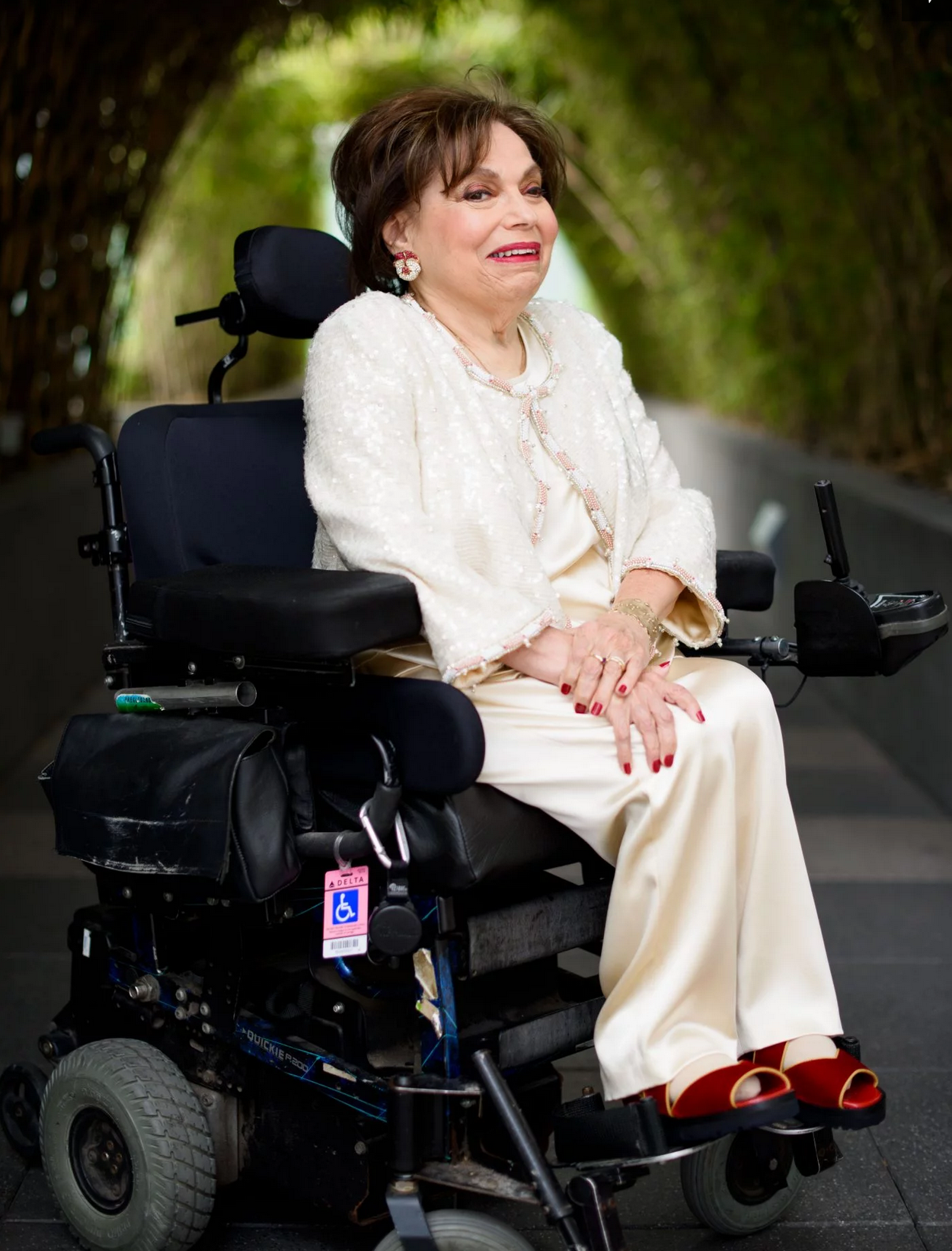 Did you know?
Did you know?
Disability culture was a winner at the Oscars.
Crip Camp was nominated for best documentary. It chronicled the role played by disabled people who attended a summer camp in New York in the passage of the Americans with Disability Act. It featured activist Judy Heumann who is pictured above wearing her Oscar-designed champagne silk satin pantsuit.
“This is a landmark film that is telling a story that too many people in the Disability community and the general society do not know,” said Heumann. “Crip Camp is making disabled people around the world feel pride and enabling people to speak up against discrimination and to fight for Justice for All.”
In addition, The Sound of Metal was nominated for 6 Academy Awards including best film. It’s a film about a young drummer who is losing his hearing and confronted with life in the Deaf world. The film featured actor Paul Raci, a child of two deaf parents who during the ceremony was seen using American Sign Language.
Then there was Feeling Through, a short film about a late-night encounter between a teen and a deaf-blind man. Executive produced by Oscar-winner Marlee Matlin, she cast the first-time actor Robert Tarango, who happens to be blind and deaf himself.
The awards ceremony this year also featured a ramp and audio description for the first time.
(For more details about this historic cultural moment read Jonathan Kaufman’s column in Forbes.)
Receive your weekly copy of the Disability Digest.
